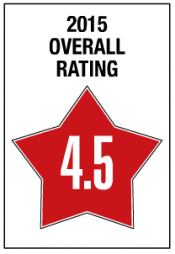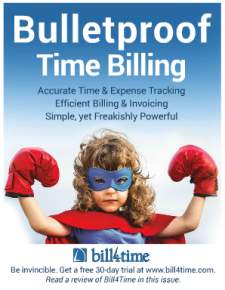
“Time is a unique resource. It cannot be accumulated like money or stockpiled like raw materials. We are forced to spend it, whether we choose to or not, and at a fixed rate of sixty seconds every minute. It cannot be turned on and off like a machine or replaced like a man. It is irretrievable.” — R. Alec Mackenzie
Good time management is essential for lawyers. Lawyers who are organized and manage their time well are likely to succeed, have greater clarity of thought, are more efficient, utilize their legal skills more effectively and make a better impression on clients and colleagues than lawyers who demonstrate poor time management skills.
Good organization and time management skills are critical to a successful and satisfying legal career. These skills are also critical for lawyers to meet important ethical obligations to their clients. A lawyer’s duty to exercise good time management skills in professional matters is mandated by the American Bar Association’s “Model Rules of Professional Conduct,” which have been adopted by many of the state bars. Rule 1.3 on Diligence Conduct, lawyers are warned to avoid procrastination as “A clients interests often can be adversely affected by the passage of time or the change in conditions…” And in Rule 1.4 on Communication requires that “A lawyer shall keep a client informed about the status of a matter” and “promptly comply with reasonable requests for information.”
In addition to the ethical aspects, poor time management and disorganization may have other drawbacks for lawyers. Mounting stress from working in a continued “crisis” mode; frustration caused from not locating important documents or information; depression or dissatisfaction from not being as productive; and even potential exposure to malpractice claims. According to one consulting firm, the following traits have been identified as malpractice red flags:
- Disorganized office and/or filing system
- Fails to keep personal calendar
- Does not make and follow a priority task list
- Sloppy timekeeping
How much does poor time management cost? Even a few minutes each day spent searching for a file, telephone number, supplies or even a book can add up to a significant amount over time. If a lawyer has an hourly wage, let’s say $100 per hour and the lawyer loses only six minutes a day to poor time management, that adds up to $2,200 in annual lost billings. For a lawyer earning $200 per hour, the loss doubles. Just 30 minutes lost per day for a lawyer earning $200 per hour suddenly escalates to $22,000 in lost billings for one year alone. Now think about the the time you spend (or lose) each day?
So the old adage, “Time is money” is true.
One way to better manage your time (and money) is by tracking both billable and nonbillable time. This may seem daunting, but once you set realistic goals and make the process a habit, it can provide significant benefits for you, your firm and your clients.
For a lawyer who bills by the hour, timekeeping is crucial. Accurately capturing the quantity of billable time directly affects the total amount of time you must spend working in order to meet your billable time goals. Accurately describing your billable time allows you to create bills that clients understand and will promptly pay.
Again, the key is to track all time. If time tracking is discretionary, time will be missed. Deciding whether or not to track time just complicates the time tracking process. Tracking all time takes that away and makes the process more simple.
Tracking all time provides insight into your day. Often the gap is in non-billable time, whether it’s administrative or marketing, it’s time. Track this time and you will not be wondering if you missed something billable.
Non-billable time adds up. Tracking non-billable time helps lawyers pinpoint time spent on administration, marketing, community, CLE and other activities. Knowing how much time you spend on outside or firm activities is important. You may not even realize how many hours you spend on these activities until you track that time.
Tracking all time helps in setting realistic goals and helps in better time management. Knowing how much time you spend and on what will help you create greater efficiencies, increase productivity and provide the transparency you need to better communicate with your clients.
For easy and simple to use time tracking, look to Bill4Time. Bill4Time offers time billing software for lawyers that tracks time, provides invoicing, contact/project and document management and the convenience of online payment options. Try Bill4Time free for 30-days and see how much time (and money) you save!






 Time Management Capabilities:
Time Management Capabilities: